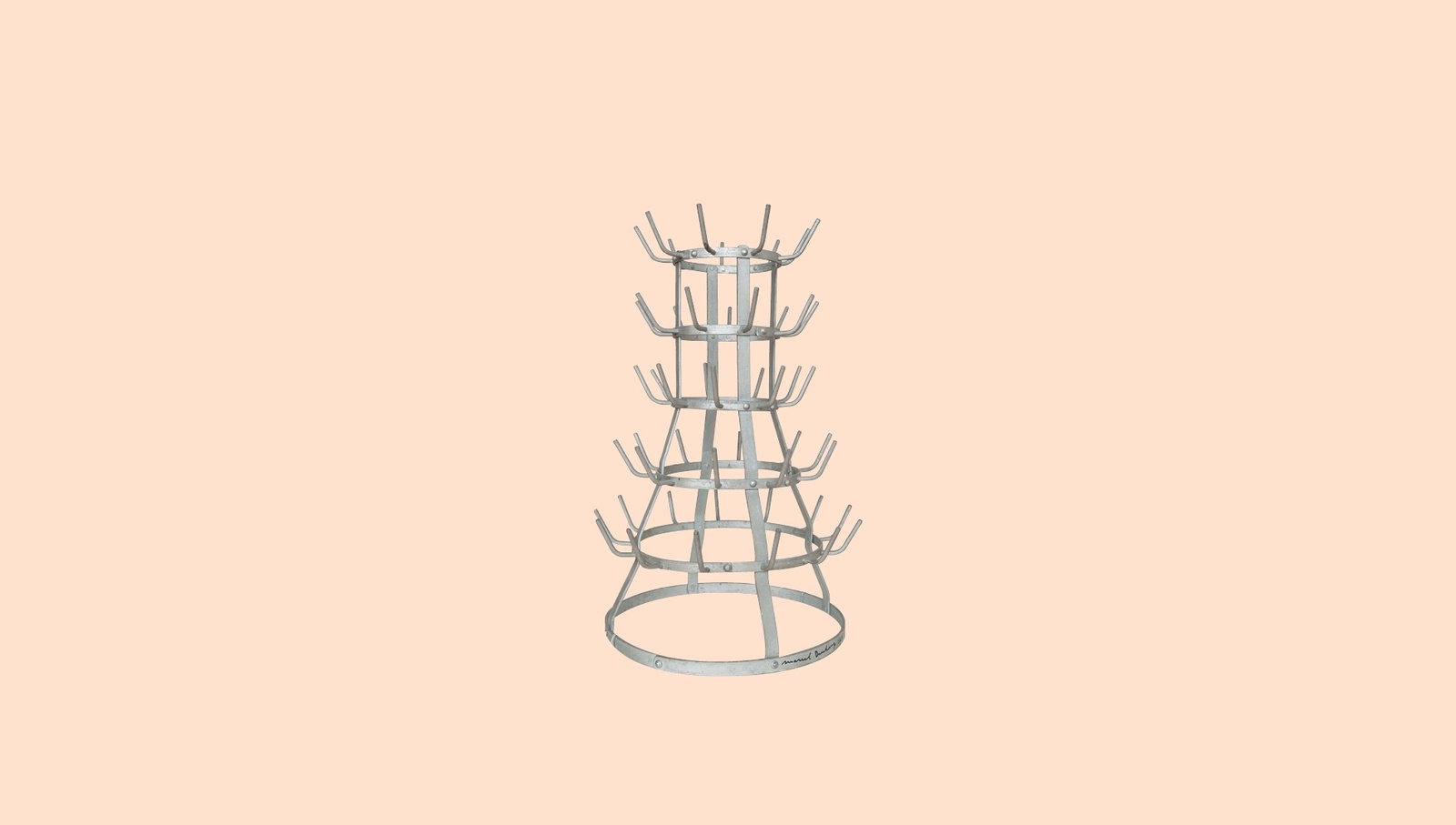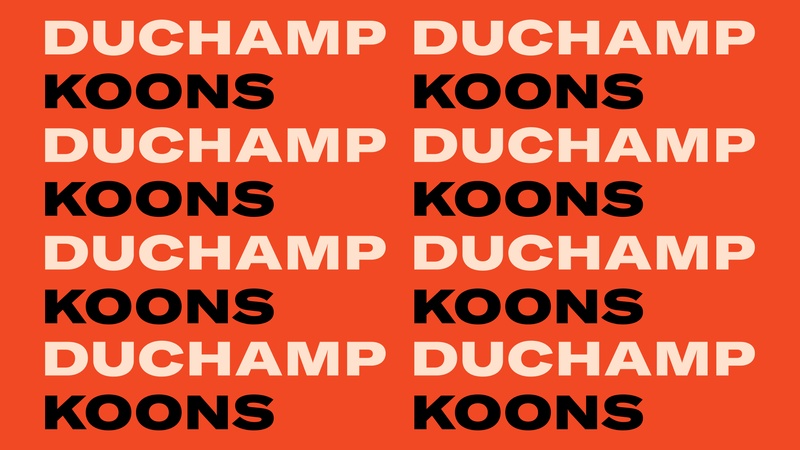Marcel Duchamp is a cult figure in the art world, to a large extent because he was responsible for opening many of the channels through which many years later contemporary art would pass. Duchamp thus became the perfect spokesperson for artists and intellectuals who sought–and still do–in his thought and work they keys to understand the complexities of art and culture in general. Part of the exhibition Appearance Stripped Bare: Desire and the Object in the Work of Marcel Duchamp and Jeff Koons, Even stems from this idea since Duchamp’s influence on Koons is clear and fruitful, as it has been for prominent artists in the history of art, like Andy Warhol, Sherrie Levine or Ai Weiwei. These talks aim to match up Duchamp with different artists he influenced or with whom he shared some closeness, similarity or even rivalry.
Coordinated by María Minera
Speakers: Thierry de Duve, Choghakate Kazarian, David Campany, Pepe Karmel, Paul B. Franklin, Christopher Domínguez Michael, Graciela Speranza, Roselin Rodríguez and Efrén Giraldo.
25.MAY.
Thierry de Duve
Jeff Koons Acknowledges Receipt of Duchamp’s Telegram
Casa de Francia
Thierry de Duve Historian and philosopher of art, is Evelyn Kranes Kossak Professor at Hunter College, City University of New York, and Emeritus from the Université de Lille 3. His publications in English translation include Pictorial Nominalism (1991), Kant after Duchamp (1996), Clement Greenberg Between the Lines (1996, 2010), Look—100 Years of Contemporary Art (2001), and Sewn In the Sweatshops of Marx: Beuys, Warhol, Klein, Duchamp (2012). Volume One of Aesthetics at Large: Art, Ethics, Politics, inspired by Kant’s Critique of Judgment, has recently appeared from the University of Chicago Press (2018). His latest manuscript, Duchamp’s Telegram, expanding on six essays he published in Artforum in 2013-2014, is forthcoming from Reaktion Books (London) in 2020.
06.JUL.
Choghakate Kazarian
Duchamp/ Eilsheimus
IFAL
Choghakate Kazarian is a curator and art historian. She has been a curator at Musée d’Art moderne de la Ville de Paris from 2011 to 2018 and has taught at the École du Louvre. Her exhibitions include Lucio Fontana, rétrospective; Henry Darger, 1892–1973; Karel Appel, l’art est on fête! and Piero Manzoni, Achrome. She has edited several exhibition catalogues and published various essays on artists such as Lucio Fontana, Henry Darger, Marcel Duchamp, Louis Michel Eilshemius and Stéphane Mandelbaum. She holds a MA in art history from the École du Louvre and a MA in philosophy from La Sorbonne. She has been pursuing a Ph.D on the American artist Albert Pinkham Ryder at the Courtauld Institute of Art.
27.JUL.
David Campany
Duchamp / Readymade / Photography
Casa de Francia
David Campany is a writer and curator. His books and exhibitions include A Handful of Dust, The Open Road: Photography and the American Road Trip, The Still Point of the Turning World: Between Film and Photography, Jeff Wall: Picture for Women, Walker Evans: The Magazine Work. He teaches at the University of Westminster, London.
03.AGO.
Pepe Karmel
Desiring Machines: Duchamp, Picabia, Koons
Casa de Francia
Pepe Karmel teaches in the Department of Art History, New York University. His book, Picasso and the Invention of Cubism, was published by Yale University Press in 2003. He organized the 1989 exhibition, Robert Morris: Felt Works, at the Grey Art Gallery, New York University, and was co-curator, with Kirk Varnedoe, of the 1998 retrospective, Jackson Pollock, at the Museum of Modern Art, New York. In 2004, he organized The Age of Picasso: Gifts to American Museums, which was seen in Rome and in Santander, Spain. He was the curator of New York Cool: Painting and Sculpture from the NYU Collection, in 2008, and the co-curator, with Joachim Pissarro, of Conceptual Abstraction, seen at the Hunter College / Times Square Gallery in 2012. He has contributed to numerous other exhibition catalogues and has written widely on modern and contemporary art for publications including Art in America and The New York Times. He is currently at work on Abstract Art: A Global History, to be published by Thames & Hudson in 2020.
24.AGO.
Paul B. Franklin
Marcel Duchamp and John Cage: The Art of Life, Life as Art
Casa de Francia
Paul B. Franklin earned his doctorate in art history from Harvard University. Based in Paris, he is an independent scholar and a leading expert on Marcel Duchamp. From 2000 to 2016, he was the editor in chief of the scholarly journal Étant donné Marcel Duchamp, one of the most highly regarded publications devoted to the artist and his work. He also worked with Duchamp’s heirs for many years managing the artist’s estate. Some of his most recent publications include “Marcel Duchamp, ses maîtres et ses pirouettes autour de la peinture,” which was the lead essay in the catalogue of the exhibition Marcel Duchamp: la peinture, même organized in 2014 at the Centre Pompidou in Paris, and the book The Artist and His Critic Stripped Bare, a bilingual edition of the correspondence of Duchamp and Robert Lebel, which the Getty Research Institute in Los Angeles published in 2016. In 2018, he organized the exhibition Brancusi & Duchamp: The Art of Dialogue at the Kasmin Gallery in New York, for which he also wrote the accompany catalogue.
31.AGO.
Christopher Domínguez Michael
Octavio Paz and Marcel Duchamp
Casa de Francia
Christopher Domínguez Michael is a literary critic, essayist, culture historian and novelist. He has published in national and international newspapers and magazines such as El Universal, Nexos, Letras Libres, Unomásuno, El País, Cuadernos Hispanoamericanos, Letra internacional, El Mercurio, The Latinamerican Review and El malpensante. He has been a scholar at INBAL in literary criticism (1986); at FONCA as an artistic creator (1991-1992); at the Octavio Paz Foundation as an essayist (2000-2001), as well as at the Guggenheim Foundation (2006). He was a member of the SNCA between 1993 and 2000. He has received the Guillermo Rousset Banda Award 1998 for Tiros en el concierto, and the Xavier Villaurrutia Award 2004 for Vida de Fray Servando.
7 SEP.
Efrén Giraldo
Duchamp and artwork
Casa de Francia
Efrén Giraldo lives and works in Medellín, Colombia. He is an essayist, critic, storyteller, researcher, editor, curator and university professor. He has a doctorate in Literature, a master’s degree in Art History and a degree in Spanish and Literature from Universidad de Antioquia. He is Research Professor and Coordinator of the Master’s Degree in Creative Writing at Eafit University. He has published among other books: Proyecto para una revolución narrativa y otros ensayos críticos (2005); Marta Traba, crítica del arte latinoamericano (2007); La crítica del arte moderno en Colombia, un proyecto formativo (2007); Las verdades indirectas de la utopía pesimista (2009); Los límites del índice. Imagen fotográfica y arte contemporáneo en Colombia (2010); Negroides, simuladores, melancólicos. El ser nacional en el ensayo literario colombiano del siglo XX (2012). His most recent book is Incluso. Duchamp, arte y trabajo, published in 2019 by Mimesis de Chile.
14.SEP.
Graciela Speranza
Duchamp, Borges and After
Casa de Francia
Graciela Speranza is an essayist, narrator and film scriptwriter. She received her doctorate in literature from the Universidad de Buenos Aires, where she taught Argentine literature. Since 2009 she has been a professor in the Department of Arts at the Universidad Torcuato Di Tella. Among other books she has published the essays Fuera de campo, Literatura y arte argentinos después de Duchamp, Atlas portátil de América Latina (finalist of the Premio Anagrama de Ensayo), Cronografías. Arte y ficciones de un tiempo sin tiempo, and two novels, Oficios ingleses and En el aire. In 2002 she received the Guggenheim Fellowship and in 2012, as a result of the Getty Research Institute’s “Surrealism in Latin America” project, she edited with Rita Eder and Dawn Ades the anthological volume Surrealism in Latin America. Vivísimo muerto. In 2014 she was Tinker Visiting Professor at Columbia University, and in 2018 she was Visiting Professor at Cornell University. As a scriptwriter she collaborated in films by Alberto Fischerman, Lucrecia Martel, Adrián Caetano and Diego Lerman. As a cultural critic she collaborated in Crisis, Babel, Página 12, Clarín and La Nación. Since 2003, with Marcelo Cohen, she has directed literature and arts magazine Otra parte.
21.SEP.
Roselin Rodríguez
Rrose Sélavy as Groucho Marx. Notes on the notion of the transvestite avant-garde
Casa de Francia
Roselin Rodríguez Espinosa (Havana, 1986) is an art historian and curator. She is currently studying for a Doctorate in Art History at the UNAM. She is a member of the art space Biquini wax EPS and the Yacusis. Grupo de Estudios Subcríticos, with whom in 2018 she curated Melquiades Herrera. Reportaje plástico de un teorema cultural. His doctoral research studies the cross between neo-avant-garde and popular culture in Mexican art of the 1970s and 1980s.

























